Table of Contents
The PYQ of class 10 SST subject will help students score more marks in their upcoming board exam. The use of CBSE Class 10 Social Science Previous Year Question Papers aids students in achieving high marks in the subject, hence raising the percentage. Therefore, before the board exam, students should complete these CBSE Class 10 Previous Year Question Papers with solutions in order to achieve more marks on the Social Studies examination.
By using these CBSE Class 10 Social Science Previous Year Question Papers, you may gain knowledge about the format of the questions, the marking scheme for each unit, the kinds of questions that are asked, and the degree of difficulty. With these papers, students can also analyze their performance. So, we have given the previous year question papers of different classes below.
SST PYQs Class 10
The SST Previous year question papers (PYQs) are a handy resource for the board exam. To get knowledge about novel and distinct question types typically seen in the Board paper, all you need to do is refer to Social Science Previous Year Papers. These papers provide an understanding of the previous years’ patterns and the division of marks among sections.
They will be able to carefully review the complete curriculum, learn from their mistakes, and know how to approach the paper professionally by using these Social Science Previous Year Papers, Marking Scheme Solutions, and Topper Answer Sheet.
Class 10 SST Previous Year Question Paper
Central Board of Secondary Education is all set to conduct CBSE Exam 2023 from 15th Feb onwards. The candidates must solve CBSE Class 10th Social Science Previous Year Question Papers to understand the trend and level of questions. The candidates can also assess their preparation by solving CBSE Class 10th Social Science Previous Year Question Papers given on this page.
Class 10 SST Last 10 Year Question Paper with Solution
The CBSE might not repeat the questions but the patterns of questions got repeated every year, therefore to score extra marks in the Class 10th examination the students must solve the CBSE Class 10th Social Science Previous Year Question Papers. Solve all the questions given on this page and bookmark this page to get updated with the CBSE Exam 2023. class 10 SST last 10 year question paper with solutions will be provided soon in this page. Until then, students can review the question papers and solutions of the previous four years here.
Also Check:
SST PYQs Class 10 with Solutions 2023
PYQ Class 10 SST is very useful in preparing for the CBSE Board Exam. For this, below we have provided students with the question paper of SST class 10 along with their solutions. Students must go through the questions and solutions of the last year paper to score better marks this year.
Class 10th SST Previous Year Question Paper – 2022
Q. Which of the following revolutions is called as the first expression of ‘Nationalism’?
- French Revolution
- Russian Revolution
- Glorious Revolution
- The Revolution of the liberal
Q. Why was the Inland Emigration Act of 1859 troublesome for plantation workers?
Q. Why was the Vernacular Press Act passed in 1878?
Or
Why was ‘Gulamgiri’ book written by Jyotiba Phule in 1871?
Q. Define the term ‘Veto.’
Or
Define the term ‘Carding.’
Q. Fill in the blank.
Buddhist missionaries from China introduced hand-printing technology into ______ around A.D. 768-770.
Or
By 1448, Gutenberg perfected the system of printing. The first book he printed was the _______.
Q. Why was reading of manuscript not easy in India? Choose the appropriate reason from the following options:
- Manuscripts were highly cheap.
- Manuscripts were widely spread out.
- Manuscripts were written in English and Hindi.
- Manuscripts were fragile.
Q. Who were called ‘Chapmen’? 1
- Book seller
- Paper seller
- Workers of printing press
- Seller of ‘penny chap books’
Q. Fill in the blanks.
| Types of Resources | Examples |
| A -? | Biotic and Abiotic |
| B -? | Renewable and non-renewable |
Q. Which is the oldest artificial sea port of India?
Or
Which is the deepest, landlocked and well protected sea port of India?
Q. In which of the following States is Kalpakkam Nuclear Power Plant located?
- Gujarat
- Odisha
- Kerala
- Tamil Nadu
Q. Choose the correct option from columns A and B.
| A | B |
| (a) Chandrapur thermal power plant | (i) Odisha |
| (b) Mayurbhanj iron ore mines | (ii) Amarkantak |
| (c) Kalol oil fields | (iii) Gujarat |
| (d) Bauxite mines | (iv) Jharkhand |
Q. Fill in the blank :
________ industry is used for manufacturing aircraft, utensils and wires
Q. Which one of the following is a major caste group of Sri Lanka : 1
- Christian and Tamil
- Buddhist and Hindu
- Sinhali and Tamil
- Sinhali and Christian
Q. State any one step taken in Belgium to rule out the problem of regional differences and cultural diversities.
- Modern democracies maintain check and balance system. Identify the correct option based on the horizontal power sharing arrangement.
- Central government, state government, local bodies.
- Legislature, executive, judiciary.
- Among different social groups.
- Among different pressure groups.
Q. Suggest any one way to protect women from domestic oppression.
Or
Suggest any one way to create communal harmony among various communities of India.
Q. Choose the incorrect option from column A and column B.
| Column A
Category of person |
Column B
Developmental goals/Aspirations |
| (a) Landless rural labourers | (i) More days of work and better
wages |
| (b) Prosperous farmers from
Punjab |
(ii) Availability of other sources
of irrigation |
| (c) Farmers who depend only on
rain for growing crops |
(iii) Assured a higher support
prices for their crops |
| (d) A rural woman from a land
owning family |
(iv) Regular job and high wages
to increase her income |
Q. Study the table and answer the question given below.
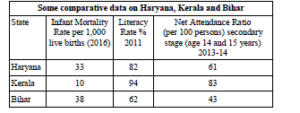
Sources : Economic Survey, 2017-18 Vol. 2, Government of India;
National Sample Survey Organisation (Report No. 575)
Q. In comparison to Kerala which state has the highest infant mortality rate.
Q. Suggest any one way to create employment in semi-rural areas.
Q. How is GDP calculated? 1
Or
How is Public sector different from Private sector?
Q. Read the source given below and answer the questions that follows:
Source : The Movement in the Towns
The movement started with middle-class participation in the cities. Thousands of students left government-controlled schools and colleges, headmasters and teachers resigned, and lawyers gave up their legal practices. The council elections were boycotted in most provinces except Madras, where the Justice Party, the party of the non-Brahmans, felt that entering the council was one way of gaining some power–something that usually only Brahmans had access to. The effects of non-cooperation on the economic front were more dramatic. Foreign goods were boycotted, liquor shops picketed, and foreign cloth burnt in huge bonfires. The import of foreign cloth halved between 1921 and 1922, its value dropping from Rs. 102 crore to Rs. 57 crore. In many places merchants and traders refused to trade in foreign goods or finance foreign trade. As the boycott movement spread, and people began discarding imported clothes and wearing only Indian ones, production of Indian textile mills and handlooms went up.
- Explain the role of ‘Justice Party’ in boycotting of council elections.
- How was the effects of ‘non-cooperation on the economic front’ dramatic?
- Explain the effect of ‘Boycott’ movement on ‘foreign textile trade.’
- Explain any three effects of population growth in England in the late eighteenth century. 1×3=3
Or
Why did the export of Indian textile decline at the beginning of the nineteenth century? Explain any three reasons. 1×3=
Q. Describe the importance of judicious use of resources. 3
Or
Describe the different steps of ‘resource planning.’
Q. “Efficient means of transport are pre-requisites for fast development of the country.” Support the statement with an example
Q. Describe any three features of ‘federal government.’ 1×3=3
Or
Describe any three features of ‘unitary government.’ 1×3
Q. Mention any three features of ‘secularism’ described in the Indian Constitution. 1×3=3
Or
Mention the problem of ‘Casteism’ in Indian politics. 1×3
Q. Suggest any three ways to maintain Body Mass Index (BMI). 1×3=
Q. “Tertiary sector activities help in the development of the primary and secondary sectors.” Evaluate the statement.
Or
“ ‘Primary sector’ was the most important sector of economic activity at initial stages of development.” Evaluate the statement.
Q. How did ideas of national unity in early nineteenth century Europe allied to the ideology of liberalism? Explain.
Or
How did Greek war of independence mobilise nationalist feelings among the educated elite across Europe? Explain.
Q. Why is agriculture called the backbone of Indian economy? Explain.
Q. Describe any five functions of political party. 1×5=5
Q. ‘Democratic system is better than any other form of governments.’ Support the statement with examples.
Q. “Bank plays an important role in the economic development of the country.” Support the statement with examples. 5
Or
“Credit sometimes pushes the borrower into a situation from which recovery is very painful.” Support the statement with examples.
Q. Read the sources given below and answer the questions that follow :
Source A – Production across countries
Until the middle of the twentieth century, production was largely organised within countries. What crossed the boundaries of these countries were raw material, food stuff and finished products. Colonies such as India exported raw materials and food stuff and imported finished goods. Trade was the main channel connecting distant countries. This was before large companies called multinational corporations (MNCs) emerged on the scene.
Source B – Foreign trade and integration of markets
Foreign trade creates an opportunity for the producers to reach beyond the domestic markets, i.e., markets of their own countries. Producers can sell their products not only in markets located within the country but can also compete in markets located in other countries of the world. Similarly, for the buyers, import of goods produced in another country is one way of expanding the choice of goods beyond what is domestically produced.
Source C – Impact of globalisation in India
Globalisation and greater competition among producers – both local and foreign producers – has been of advantage to consumers, particularly the well-off sections in the urban areas. There is greater choice before these consumers who now enjoy improved quality and lower prices for several products. As a result, these people today, enjoy much higher standards of living than was possible earlier.
Source A – Production across countries
- How are MNCs a major force in connecting the countries of the world? 1
Source B – Foreign trade and integration of markets
2. How does foreign trade become a main channel in connecting countries? 2
Source C – Impact of globalisation in India
3. How is globalisation beneficial for consumers? 2
Section-D
Map Skill Based Question
Q. (a) Two features ‘A’ and ‘B’ are marked on the given political outline map of India. Identify these features with the help of the following informations and write their correct names on the lines marked near them. 1×2=2
(A) The place where the Indian National Congress Session was held.
(B) The place where the movement of Indigo planters was started.
(b) Locate and label any four of the following with appropriate symbols on the same given political outline map of India.
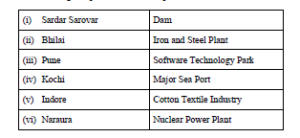
Note : The following questions are for Visually Impaired Candidates only in lieu of
Q. Attempt any six questions.
1. Name the State where the session of Indian National Congress was held in 1920. 1
2. Name the State where the movement of Indigo planters was started. 1
3. Name the State where the Jallianwala Bagh massacre occured. 1
4. Name the State where Sardar Sarovar Dam is located. 1
5. Name the State where Bhilai Iron and Steel plant is located. 1
6. Name the State where Pune Software Technology Park is located. 1
7. Name the State where Kochi ‘Sea Port’ is located. 1
8. Name the State where Indore cotton textile industry is located. 1
Class 10th SST Previous Year Question Paper with Solution-2021
CBSE Class 10 SST Solved Paper 2021

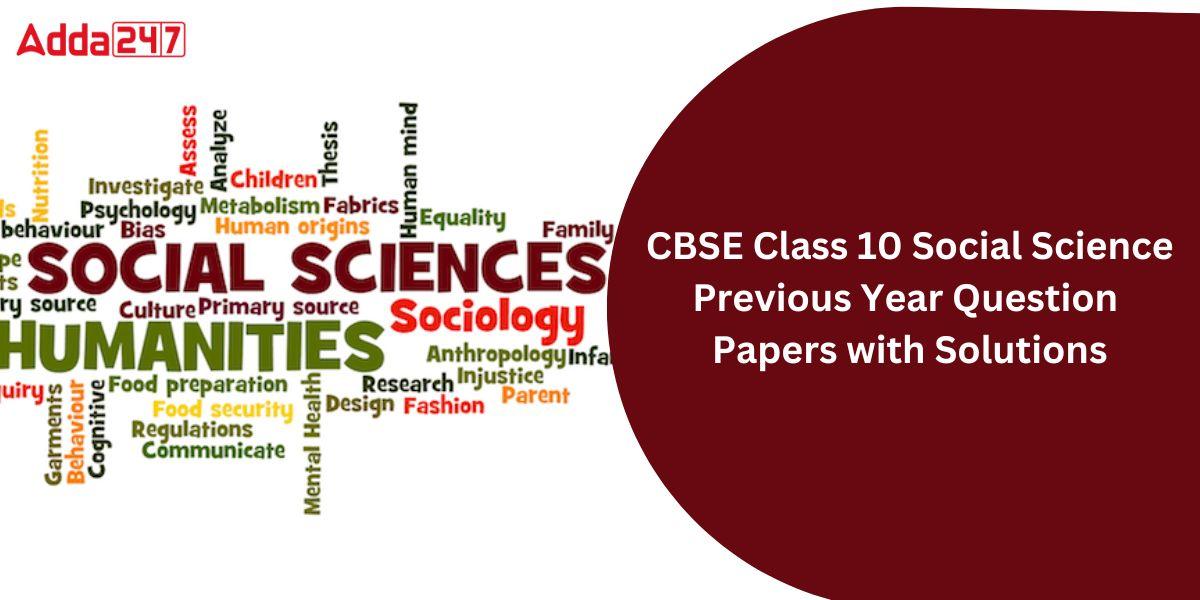


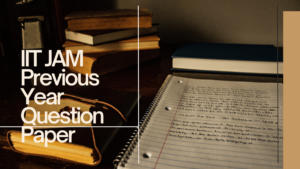 IIT JAM Previous Year Question Paper PDF...
IIT JAM Previous Year Question Paper PDF...
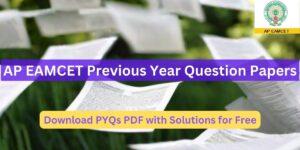 AP EAMCET Previous Year Question Papers ...
AP EAMCET Previous Year Question Papers ...
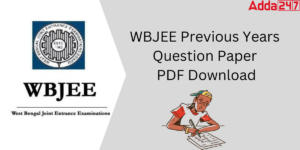 WBJEE Previous Year Question Papers with...
WBJEE Previous Year Question Papers with...










